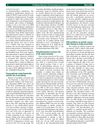 October 2022 in “Medical Clinical Update Journal”
October 2022 in “Medical Clinical Update Journal” Early diagnosis and treatment with Leuprolide are key for children with precocious puberty.
 April 2020 in “Online journal of complementary & alternative medicine”
April 2020 in “Online journal of complementary & alternative medicine” Some medications can help increase sexual desire and function in women.
 February 2021 in “The Brown University Psychopharmacology Update”
February 2021 in “The Brown University Psychopharmacology Update” Finasteride use in young people may increase risk of suicidal thoughts and mental health issues.
 December 2015 in “Faculty Opinions – Post-Publication Peer Review of the Biomedical Literature”
December 2015 in “Faculty Opinions – Post-Publication Peer Review of the Biomedical Literature” Finasteride, a hair loss treatment, may cause long-term sexual dysfunction and depression.
 December 2020 in “Current Sexual Health Reports”
December 2020 in “Current Sexual Health Reports” Finasteride can have lasting negative effects on brain function and behavior by disrupting neurosteroid production.
 30 citations,
April 2021 in “The Journal of Sexual Medicine”
30 citations,
April 2021 in “The Journal of Sexual Medicine” Testosterone therapy can help postmenopausal women with low sexual desire if monitored carefully.
 20 citations,
April 2021 in “Journal of Womens Health”
20 citations,
April 2021 in “Journal of Womens Health” Testosterone can help premenopausal and postmenopausal women with low sexual desire, but its long-term safety is unclear and it's not widely approved for this use.
 12 citations,
November 2018 in “JAMA Dermatology”
12 citations,
November 2018 in “JAMA Dermatology” Collecting sexual orientation and gender identity data in dermatology can lead to better, more sensitive care for sexual and gender minority patients.
 10 citations,
January 2019 in “Archives of Endocrinology and Metabolism”
10 citations,
January 2019 in “Archives of Endocrinology and Metabolism” Testosterone therapy may slightly increase sexual desire in women with HSDD but lacks broad recommendation due to safety concerns and limited approval.
 September 2023 in “Fides et Ratio”
September 2023 in “Fides et Ratio” The safety and effectiveness of gender-affirming treatments for children are uncertain, with potential long-term risks like infertility.
 April 2015 in “Cambridge University Press eBooks”
April 2015 in “Cambridge University Press eBooks” Many women experience sexual dysfunction, but few seek help, and better treatment and medical training are needed.
 112 citations,
July 2012 in “The Journal of Sexual Medicine”
112 citations,
July 2012 in “The Journal of Sexual Medicine” Finasteride may cause long-lasting sexual side effects.
 251 citations,
October 2014 in “The Journal of Clinical Endocrinology & Metabolism”
251 citations,
October 2014 in “The Journal of Clinical Endocrinology & Metabolism” The guidelines advise against using testosterone and DHEA in women for most conditions due to safety and effectiveness concerns, but suggest considering testosterone for postmenopausal women with low sexual desire.
 57 citations,
July 2009 in “Urology”
57 citations,
July 2009 in “Urology” Finasteride helps reduce priapism in sickle cell anemia patients.
 11 citations,
September 2012 in “Journal of obstetrics and gynaecology Canada”
11 citations,
September 2012 in “Journal of obstetrics and gynaecology Canada” Testosterone therapy seems safe for short-term use in postmenopausal women with low sexual desire, but more research on long-term effects is needed.
 7 citations,
April 2012 in “Clinical investigation”
7 citations,
April 2012 in “Clinical investigation” Transdermal testosterone can improve sexual desire in postmenopausal women but lacks long-term safety data and is not FDA-approved for this use.
 21 citations,
February 2016 in “Reproductive Biomedicine Online”
21 citations,
February 2016 in “Reproductive Biomedicine Online” The conclusion suggests that PCOS may persist due to genetic traits that, while harmful for female fertility, could have provided survival and reproductive benefits to males.
 28 citations,
May 2013 in “The Journal of Steroid Biochemistry and Molecular Biology”
28 citations,
May 2013 in “The Journal of Steroid Biochemistry and Molecular Biology” Testosterone therapy can improve sexual desire and function in postmenopausal women but should be used cautiously and not based solely on testosterone levels.
 36 citations,
January 2014 in “The Journal of Sexual Medicine”
36 citations,
January 2014 in “The Journal of Sexual Medicine” Testosterone may help increase sexual events for women with low libido due to antidepressants.
2 citations,
November 2016 in “Current sexual health reports” Over-the-counter products can help with menopause symptoms, but be aware of their ingredients.
 282 citations,
October 2006 in “The Journal of Clinical Endocrinology and Metabolism”
282 citations,
October 2006 in “The Journal of Clinical Endocrinology and Metabolism” The Endocrine Society advised against routine testosterone therapy for women, citing a need for more research on long-term safety and a clear definition of androgen deficiency.
 23 citations,
January 2003 in “Journal of Pediatric Endocrinology and Metabolism”
23 citations,
January 2003 in “Journal of Pediatric Endocrinology and Metabolism” About 15% of US Army personnel use hair products containing hormone or placenta, with higher usage among non-whites, females, and enlisted personnel.
 March 2004 in “Current Sexual Health Reports”
March 2004 in “Current Sexual Health Reports” Testosterone's role in women's sex drive is unclear and needs more research, as low levels don't always mean less sexual interest and high levels can cause side effects.
 26 citations,
January 2020 in “Przegląd Menopauzalny”
26 citations,
January 2020 in “Przegląd Menopauzalny” Menopausal women have higher androgen levels, which can cause symptoms like facial hair growth and low sexual desire.
 December 2019 in “Reactions Weekly”
December 2019 in “Reactions Weekly” Man stopped medications due to sexual side effects, found relief with prostatic artery embolisation.
 May 2015 in “Journal of The American Academy of Dermatology”
May 2015 in “Journal of The American Academy of Dermatology” Finasteride for hair loss in young men increases the risk of sexual dysfunction.
4 citations,
February 2009 in “Obstetrical & Gynecological Survey” Testosterone patches can modestly improve sexual function in postmenopausal women not on estrogen therapy.
 47 citations,
August 2014 in “The Journal of Clinical Endocrinology and Metabolism”
47 citations,
August 2014 in “The Journal of Clinical Endocrinology and Metabolism” The research suggests that the global distribution of PCOS is likely due to historical human migration and that genes affecting PCOS may have different impacts on males and females.
 46 citations,
January 2008 in “Climacteric”
46 citations,
January 2008 in “Climacteric” Testosterone therapy can help improve sexual desire and function in postmenopausal women but may cause side effects and is not FDA-approved for this use.
 May 2015 in “Journal of The American Academy of Dermatology”
May 2015 in “Journal of The American Academy of Dermatology” Young men taking finasteride for hair loss have a higher risk of sexual dysfunction.




























